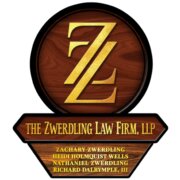Best Insurance Lawyers in Kansas
Share your needs with us, get contacted by law firms.
Free. Takes 2 min.
Or refine your search by selecting a city:
List of the best lawyers in Kansas, United States
About Insurance Law in Kansas, United States
Insurance law in Kansas covers the regulations, statutes, and legal processes that govern insurance policies and claims in the state. Insurance can include health, auto, home, life, business, and other policy types. The primary objective of insurance law is to ensure consumers are protected, insurance companies are regulated, and fair claims handling is maintained. Oversight of the insurance industry in Kansas is managed by the Kansas Insurance Department, which sets standards for licensing, consumer protection, and industry practices.
Why You May Need a Lawyer
Many situations may arise where legal help is important when dealing with insurance matters. Common scenarios include:
- Denied or delayed claims: Insurance companies may refuse or stall payment of valid claims, often requiring legal intervention to resolve disputes.
- Disagreements over policy coverage: It is not uncommon for disputes to arise about what is covered under a specific insurance policy.
- Bad faith insurance practices: Insurance companies are required to deal honestly with policyholders. Acting in bad faith, such as denying claims without reason, can lead to lawsuits.
- Underpayment of claims: If you believe you received less compensation than your policy entitles you to, a lawyer can help negotiate or litigate for the correct amount.
- Assisting with complex legal language: Insurance policies are often filled with complex terms, where a lawyer can help clarify coverage and exclusions.
- Adjusting to new state laws or policy changes: A legal professional can ensure you remain compliant and aware of new requirements or coverage mandates.
- Representing businesses in insurance disputes: Businesses often require legal representation with business interruption insurance, liability claims, or workers’ compensation disputes.
Local Laws Overview
Kansas has state-specific laws and regulations related to insurance. Some important aspects include:
- Kansas Insurance Commissioner: The Commissioner regulates the industry, ensures fair practices, and enforces state insurance laws.
- Prompt Payment of Claims Act: This law requires insurance companies to process and pay valid claims within a reasonable period or face penalties.
- Minimum Insurance Requirements: Drivers must carry liability insurance with specific minimum coverage outlined by Kansas law.
- Uninsured and Underinsured Motorist Coverage: Kansas requires these protections in all automobile policies to cover damages if you are in an accident with an uninsured or underinsured driver.
- No-Fault Auto Insurance: Kansas follows a no-fault system, meaning your own insurance covers certain damages regardless of fault after an auto accident.
- Homeowner and Property Insurance Regulations: These laws protect homeowners from unfair denial of claims and improper rate increases.
- Bad Faith Laws: Kansas law provides remedies for policyholders if an insurance company unreasonably denies a claim or acts in bad faith.
Frequently Asked Questions
What types of insurance are required by law in Kansas?
The most common required insurance is auto liability insurance. Certain businesses may also be required to carry workers’ compensation and other specialized coverages.
How long does an insurance company have to pay a claim in Kansas?
Insurance companies are required by the Prompt Payment of Claims Act to pay or deny claims within a reasonable time frame, usually within 30 days of receiving all necessary documentation.
What are my options if my insurance claim is denied?
You can appeal directly to the insurance company, file a complaint with the Kansas Insurance Department, or consult an attorney to explore legal options for contesting the denial.
What is “bad faith” in insurance, and how is it handled in Kansas?
Bad faith occurs when an insurance company unreasonably denies, delays, or underpays a legitimate claim. Kansas law allows policyholders to pursue damages in court if bad faith is proven.
Does Kansas use a no-fault system for auto insurance?
Yes, Kansas is a no-fault state for auto accidents, meaning all parties turn to their own insurance for certain claims, regardless of who caused the accident.
Are life insurance proceeds taxable in Kansas?
Generally, life insurance payouts are not subject to state income tax, but there may be exceptions for interest earned on the proceeds.
What should I do if I encounter an uninsured driver?
Kansas drivers are required to carry uninsured motorist coverage. If you are in an accident with an uninsured driver, file a claim under your own policy and consider seeking legal guidance if there are issues.
Can my insurance company cancel my policy at any time?
Kansas law restricts when policies can be canceled and often requires advance notice. There are specific allowable reasons for cancellation, such as nonpayment or material misrepresentation.
Do homeowners need flood insurance in Kansas?
Flood insurance is not included in standard homeowner policies and must be purchased separately. It is recommended for homes located in flood-prone areas.
Can I dispute my insurance company’s calculation of damages?
Yes, you may provide your own evidence such as repair estimates, or hire an independent assessor. Legal counsel can assist, especially if negotiations do not resolve the disagreement.
Additional Resources
If you need more information or help regarding insurance in Kansas, the following resources can be valuable:
- Kansas Insurance Department - Provides consumer guides, complaint processes, and answers to coverage questions.
- Legal Aid Organizations - Nonprofit groups may offer free or low-cost advice for qualifying individuals.
- Kansas Bar Association - Offers lawyer referral services and educational legal materials.
- Better Business Bureau - A good source for researching complaints against insurance companies.
- National Association of Insurance Commissioners - Provides consumer tips and insurance industry regulation updates.
Next Steps
If you believe you require legal assistance with an insurance issue in Kansas, consider the following steps:
- Document everything related to your insurance policy, claim, and communications with your insurer.
- Attempt to resolve disputes directly with your insurance company through their appeals or complaint process.
- Contact the Kansas Insurance Department for guidance or to file an official complaint.
- Seek legal advice from a qualified Kansas insurance attorney, especially if your attempts at resolution are not successful.
- Prepare the relevant documents and a summary of events before meeting with any legal professional.
- Continue to educate yourself on your rights and responsibilities as a policyholder in Kansas.
With the right information and guidance, you can strongly advocate for your interests and work toward a fair outcome in any Kansas insurance matter.
Lawzana helps you find the best lawyers and law firms in Kansas through a curated and pre-screened list of qualified legal professionals. Our platform offers rankings and detailed profiles of attorneys and law firms, allowing you to compare based on practice areas, including Insurance, experience, and client feedback.
Each profile includes a description of the firm's areas of practice, client reviews, team members and partners, year of establishment, spoken languages, office locations, contact information, social media presence, and any published articles or resources. Most firms on our platform speak English and are experienced in both local and international legal matters.
Get a quote from top-rated law firms in Kansas, United States — quickly, securely, and without unnecessary hassle.
Disclaimer:
The information provided on this page is for general informational purposes only and does not constitute legal advice. While we strive to ensure the accuracy and relevance of the content, legal information may change over time, and interpretations of the law can vary. You should always consult with a qualified legal professional for advice specific to your situation.
We disclaim all liability for actions taken or not taken based on the content of this page. If you believe any information is incorrect or outdated, please contact us, and we will review and update it where appropriate.
Browse insurance law firms by service in Kansas, United States
Kansas, United States Attorneys in related practice areas.
Browse insurance law firms by city in Kansas
Refine your search by selecting a city.














